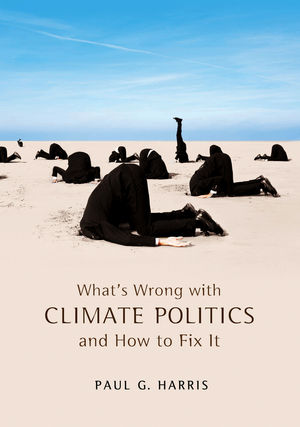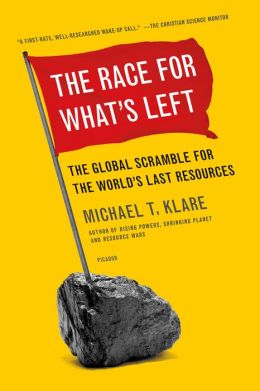(View all the new titles for the week)
Antarctic ecosystems : an extreme environment in a changing world edited by Alex D. Rogers ... [et al.].
Since its discovery Antarctica has held a deep fascination for biologists. Extreme environmental conditions, seasonality and isolation have lead to some of the most striking examples of natural selection and adaptation on Earth. Paradoxically, some of these adaptations may pose constraints on the ability of the Antarctic biota to respond to climate change. Parts of Antarctica are showing some of the largest changes in temperature and other environmental conditions in the world. In this volume, published in association with the Royal Society, leading polar scientists present a synthesis of the latest research on the biological systems in Antarctica, covering organisms from microbes to vertebrate higher predators. This book comes at a time when new technologies and approaches allow the implications of climate change and other direct human impacts on Antarctica to be viewed at a range of scales; across entire regions, whole ecosystems and down to the level of species and variation within their genomes. Chapters address both Antarctic terrestrial and marine ecosystems, and the scientific and management challenges of the future are explored.
Genetic Roulette: the gamble of our lives (DVD)
Never-Before-Seen-Evidence points to genetically engineered foods as a major contributor to rising disease rates in the US population, especially among children. Gastrointestinal disorders, allergies, inflammatory diseases, and infertility are just some of the problems implicated in humans, pets, livestock, and lab animals that eat genetically modified soybeans and corn.
Near-Earth objects : finding them before they find us / Donald K. Yeomans. 
Of all the natural disasters that could befall us, only an Earth impact by a large comet or asteroid has the potential to end civilization in a single blow. Yet these near-Earth objects also offer tantalizing clues to our solar system's origins, and someday could even serve as stepping-stones for space exploration. In this book, Donald Yeomans introduces readers to the science of near-Earth objects--its history, applications, and ongoing quest to find near-Earth objects before they find us.What's wrong with climate politics and how to fix it by Paul G. Harris.
 Governments have failed to stem global emissions of carbon dioxide and other greenhouse gases causing climate change. Indeed, climate-changing pollution is increasing globally, and will do so for decades to come without far more aggressive action. What explains this failure to effectively tackle one of the world's most serious problems? And what can we do about it?
Governments have failed to stem global emissions of carbon dioxide and other greenhouse gases causing climate change. Indeed, climate-changing pollution is increasing globally, and will do so for decades to come without far more aggressive action. What explains this failure to effectively tackle one of the world's most serious problems? And what can we do about it?To answer these questions, Paul G. Harris looks at climate politics as a doctor might look at a very sick patient. He performs urgent diagnoses and prescribes vital treatments to revive our ailing planet before it's too late.
The race for what's left : the global scramble for the world's last resources by Michael T. Klare.
"A first-rate, well-researched wake-up call."---The Christian Science Monitor
"Outstanding…Exhaustively researched, beautifully written, and convincingly argued."---The Huffington Post
 "Stunning."---Rolling Stone
"Stunning."---Rolling Stone
"Reading this book, it’s hard not to think about postapocalyptic fiction….Think Margaret Atwood, Cormac McCarthy, and, most recent, Suzanne Collins’s Hunger Games. Yet novelists often skip over the messy parts along the road to dystopia. It’s scary to think that Klare, far from crying wolf, might be providing the sordid details in real time."---Science News
"If you think oil is the only major thing we’re running short of, think again.…Crisp, authoritative…A guidebook to wars to come."---Adam Hochschild, author of King Leopold’s Ghost
"Outstanding…Exhaustively researched, beautifully written, and convincingly argued."---The Huffington Post
 "Stunning."---Rolling Stone
"Stunning."---Rolling Stone"Reading this book, it’s hard not to think about postapocalyptic fiction….Think Margaret Atwood, Cormac McCarthy, and, most recent, Suzanne Collins’s Hunger Games. Yet novelists often skip over the messy parts along the road to dystopia. It’s scary to think that Klare, far from crying wolf, might be providing the sordid details in real time."---Science News
"If you think oil is the only major thing we’re running short of, think again.…Crisp, authoritative…A guidebook to wars to come."---Adam Hochschild, author of King Leopold’s Ghost




No comments:
Post a Comment